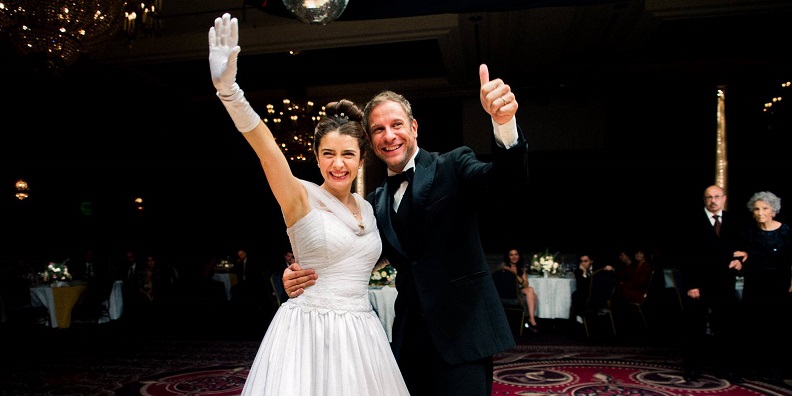Wild Tales
Director: Damián Szifron
(iTunes)
B+
At this point, the revenge narrative is more than little worn. It’s even harder to contend the prevalence of vengeance against an original story. But Damián Szifron’s Wild Tales manages to silence this claim six-fold, arguing that where there is violence, scandal, and condescending state employees, there is likewise great storytelling.
Szifron’s anthology is broken into six episodes, each one thematically consistent:
- A model (Maria Marull) and a music critic (Dario Grandinetti) coincidentally recall their memories of Gabriel, an individual they both treated poorly while flying to an undisclosed location.
- A waitress (Julieta Zylberberg) and a cook (Rita Cortese) plot to kill a late-night customer as the former realizes the man ruined the life of her family several years prior.
- Diego (Leonardo Sbaraglia) locks horns with an irritable driver (Walter Donado) after a roadside confrontation.
- After a failed marriage and career at the hands of multiple ill-received traffic violations, demolitions expert Simón (Ricardo Darin) retaliates against his local DMV.
- A very wealthy entrepreneur (Oscar Martinez) tries desperately to cover for his young son, who accidentally murdered a pregnant woman in a hit-and-run the night before.
- After Romina (Érica Rivas) learns of her new husband’s (Diego Gentile) adulterous tendencies, the bride coordinates a most violent reception.
The tales lack any shared narrative thread, and the absence of transitions (save frequent fade-to-black sequences) serves to isolate them even more. Still, it’s difficult to pluck any one of these outings from the remainder. In each episode, Szifron manages to conjure a story just as compelling as the last, doing so through a plethora of scenarios that, at first glance, appear miles from one another. Although they are distinct, these servings of vengeance are difficult to swallow separately.
Watching Wild Tales isn’t terribly far off from something like Breaking Bad, where tension and death run rampant at a moment’s notice. Cinematographer Javier Juliá is a master of the frame, each shot set with clean symmetry and garnishing a visual vibrancy even within the grimiest of locales. Yet it all begs to be shattered with a dramatic (and sometimes literal) mallet.
That’s not say that Szifron leaves us anticipating another explosion, expletive, or bloody nose. The fifth movement, for instance, is primarily driven by dialog, only broken by violence in the tale’s final milliseconds. It’s this cycle of refrain and reckless abandon that makes the Wild Tales so compelling. The almost inadvertent intricacy of these episodes, save the first, conveys a formula that many feature-length films botch.
The performances, though adequate, can be divvied up more easily. Darin’s disgruntled bomb-maker echoes shades of Bryan Cranston’s Walter White, though not to the point of blatant mimicry. Rivas’ performance is the most exceptional, shifting organically from a vulnerable, downtrodden wife to a domineering femme fatale. Many of the players satisfy their roles easily enough, but few exhibit anything close to the range of the aforementioned actress.
Wild Tales is hellacious, invigorating, and perhaps one of the most American films to emerge from Argentina. Szifron wields violence in a way very few — though my mind drifts to Tarantino — have executed effectively. It’s far from snagging a Palme d’Or anytime soon, but it does encourage us to indulge, enjoy, and have a fucking good time.





